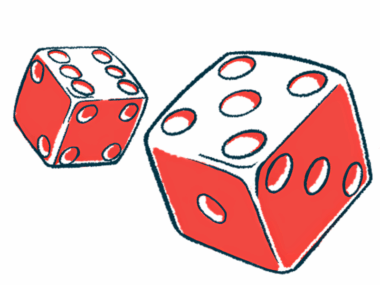Loud Emotions Can Be Risky. Here’s How to Change Course
Written by |

They all stood and watched the dog run through my gardens, trampling the newly transplanted iris and hostas. Neighbors called for their poorly trained dog to come. It did not. It continued in its role as a canine tank.
I love my gardens. I put a lot of sweat into creating a sanctuary that adds to my well-being. Standing by and watching it get damaged was maddening. I think I have a right to be upset.
No matter how hard I work on living better with a chronic illness, something comes along to upset the apple cart. It’s frustrating to work so hard on improving, and then something happens, an event outside of my control, to mess up the entire thing.
I kept saying things like, “I really don’t need this in my life.” “This just isn’t fair.” “Why does it have to be my problem?” As the incident consumed my thoughts, and as I revisited it in my mind, I also connected it to similar events in the past.
Yes, the dog has trampled through the gardens before and failed to respond to its owner. I even wrote up a set of dog training instructions, with illustrations and a dog whistle, to attempt a solution. It didn’t work. Now my brain was fluctuating back and forth between the collection of memories about the event and my search for a solution. I played out various scenarios in my brain while still being upset that I even had to come up with one. More emotions pushed me even closer to my threshold.
The closer I got to my threshold, the darker it became. I have written about the concept of darkness as a form of “brain blindness,” triggered by emotions (especially those linked to self-survival). The sanctuary for me is part of my healthy survival with a chronic illness. The dog could become a threat to my survival.
Although I knew I was approaching the dangerous threshold, I couldn’t let it go. I felt justified in staying angry. This was an injustice. Something had to be done.
My thrashing with the problem morphed into stomping around the house. I failed to communicate to my partner what I was going through. The conversation started to get unnecessarily heated, and I had to time myself out.
It is what I call “spilling out behavior,” one of the first signs that the darkness is making itself known. I removed myself from the scene and didn’t talk to my partner again until the morning.
During these times, we are often left to fix our own problems. These loud emotional situations are difficult for my partner. I can’t go to the neighbor and express my dismay with the level of intensity I am feeling. If I am in a state of emotional upheaval, it falls to my partner to help defuse the situation and to help me find a solution, as well as to support and encourage me.
Research from the University of Sydney, Australia, identified that in a group of 61 non-demented patients with Parkinson’s disease, 62% met the criteria for mild cognitive impairment. The study also recognized that “the capacity for caregivers to rate mild cognitive change in PD may be useful to assist in early screening and intervention approaches.”
Partners of folks with Parkinson’s can be of assistance. Those of us who have these mild cognitive processing problems can learn to recognize the brain blindness and accept the help. My partner and I have developed a communication strategy that helps us navigate these dark and stormy waters together.
This process of recycling a traumatic event, intensifying its emotive value, and connecting it to other similar events is what the brain does. Searching for patterns in all those events is what the brain does. Searching for a solution is what the brain does.
Our brains are not that great for accurate long-term memory storage (thank God for computers), but we are built for pattern recognition and solution generation. It is what our brain does naturally because it is designed that way.
Although going back and forth between past and future is something natural to the brain, it becomes a problem when it doesn’t function well. It’s a problem when the whole process becomes unbalanced and out of control.
Loud emotions can be risky. The solution can be found in changing my reactions and training the brain to use the conductor to redirect the brain input. It’s the new face of Parkinson’s disease for me.
***
Note: Parkinson’s News Today is strictly a news and information website about the disease. It does not provide medical advice, diagnosis or treatment. This content is not intended to be a substitute for professional medical advice, diagnosis, or treatment. Always seek the advice of your physician or another qualified health provider with any questions you may have regarding a medical condition. Never disregard professional medical advice or delay in seeking it because of something you have read on this website. The opinions expressed in this column are not those of Parkinson’s News Today or its parent company, Bionews, and are intended to spark discussion about issues pertaining to Parkinson’s disease.



VW Service Auckland
I visit everyday a few websites and websites to read articles, however this blog gives feature based
content.
Dr. C
Hello ~ Thanks for the compliment and thanks for reading my columns. Hope you check in again through Parkinson's News Today.
Dr. C.
Henri Fenger
this is an excellent article I thought..I too find myself sometimes responding in an over the top way to simple stuff.I am glad I am aware of it as it happens so i can do some simple deep breathing and calm myself down..its a yoga trick :-)..but I have friend who cannot ..and goes off for a very small thing..this is a bigger problem in PD then people often realize IMO
Dr. C
Hi Henri ~ I agree wholeheartedly that this is one "symptom" that PD demonstrates in many patients. Lots of people who have PD also end up with depression and anxiety. I think both depression and anxiety can be related to this abnormal signal input. Many folks who have depression and anxiety often did not have those symptoms before PD. I think this abnormal brain signal input may contribute to the co-occurring symptoms. It is the emotional side of PD that providers often don't inquire about, concern themselves with or have no solutions to offer. My columns attempt to bring into focus these features that we, as PD patients, deal with daily. I will be writing more columns on these subjects. I hope my suggestions provide some thoughts on how to self-manage. Thanks for the affirmation! And thanks for reading my column and following along with Parkinson's News Today.
Dr. C.